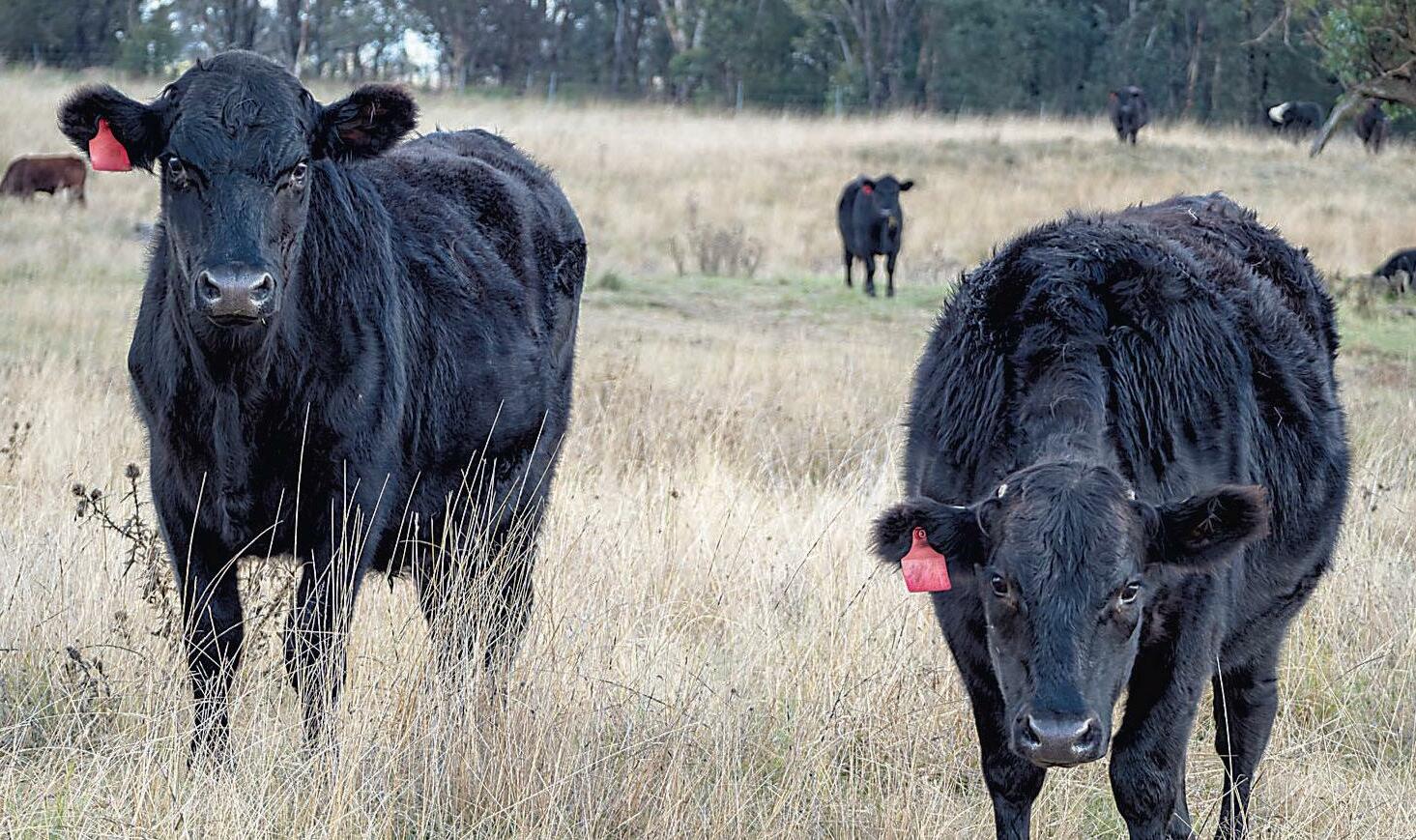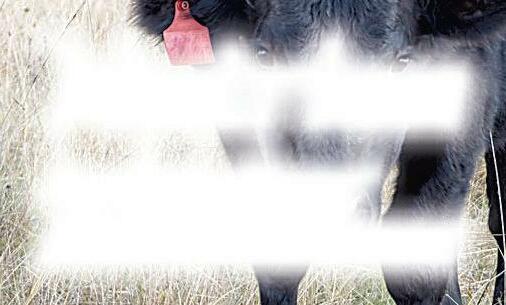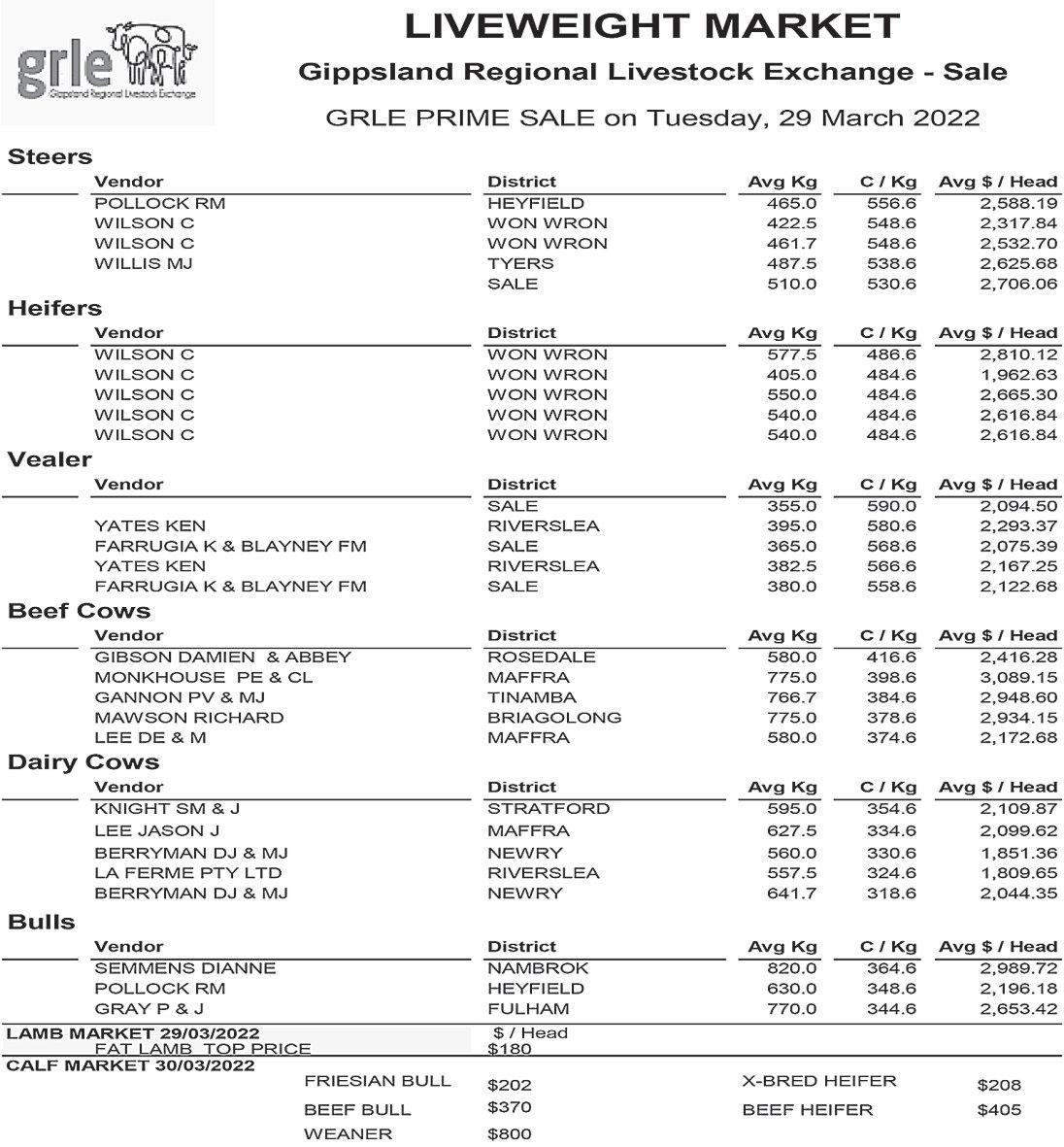
5 minute read
Meadow
Rabobank boss in Sale
Stefan Bradley
Advertisement
RABOBANK’S head of Food & Agriculture Research for Australia and New Zealand Stefan Vogel was in Sale last week to meet clients, which include dairy, beef and sheep farmers. Mr Vogel provided insights into the major local commodity markets, as well as global insights, such as the impact of the Russian invasion of Ukraine on Australian agriculture. “It’s a terrible humanitarian situation that is impacting massively on our markets, not just for grains, but also for imports like fertiliser and energy,” Mr Vogel said. Mr Vogel said that Russia and Ukraine make up a combined 25-30 per cent of the global exports of the key crops of wheat, barley, corn and canola. “With the war starting, we are seeing almost no exports out of Ukraine because all of the ports are closed, and we don’t expect them to come back soon, and they usually export 75 to 80 per cent of the commodities they are producing,” he said. “To give you an idea, Ukrainian export volumes are twice the size as Australia’s in this season.” The main concern for local livestock and horticulture clients, Mr Vogel said, is rising import costs. “The price of feed is rising, grain prices are rising, fertiliser prices are rising because of the sanctions on Russia and Belarus who are extremely important exporters of nitrogen fertiliser, and of course, the rising price of diesel and gasoline impacts everything,” he said. “The good news for farmers in our region is that the prices of milk, beef and grain are very strong, so the impact is not yet felt.” Mr Vogel’s main advice for farmers is knowing your operations and understanding how to reduce input costs where possible. “Whenever your costs are rising, you have to make sure your outputs are hopefully offsetting those costs, so those are the issues I discussed with farmers,” he said.
Rabobank’s head of Food & Agriculture Research for Australia and New Zealand Stefan Vogel visited Sale last week. Photo: Stefan Bradley
Shutting the gate on trespassers
Recovery committees to build community resilience
IN response to severe weather events in June and October last year, Wellington Shire Council is inviting people to form communityled recovery committees in impacted areas of the municipality. Community recovery committees (CRCs) are aimed at building resilience through recovery from emergencies, and helping communities to plan, prepare for and respond to similar events in the future. Residents of all ages and backgrounds are urged to consider joining the committees, which will be supported by Wellington Shire Council officers and councillors, and Bushfire Recovery Victoria. Information sessions on forming CRCs will be held at Gormandale Community House on Wednesday, April 27 at 6pm and Heyfield Community Resource Centre on Thursday, April 28 at 6pm. Wellington Shire Council Mayor Ian Bye said assessments carried out by council following last year's weather events found CRCs specific to a particular area could benefit a community's recovery. "The flood and storm event last June and the severe wind storm event in October caused widespread damage here in Wellington Shire, and the recovery process is still continuing for some of our communities," Cr Bye said. "Each community has its own challenges and ideas, and those directly affected by these events are in the best position to lead the recovery. "We want to make sure our communities are resilient, can lead recovery according to their needs, and are well-prepared to respond to severe weather events in the future."
Tom Parry
ANIMAL activists who trespass on Victorian farms are set to face tougher fines after the passing of new legislation in State Parliament. The Livestock Management Amendment (Animal Activism) Act 2021 was approved by the Upper House late Wednesday, March 22. As part of the legislation, trespassers on agricultural land will now be subject to on-the-spot fines of $1272 for an individual and $8178 for an organisation. Further penalties of up to $10,904 for an individual and up to $54,522 for an organisation apply for more serious offending. Agriculture Minister Mary-Anne Thomas said that the on-the-spot fines will be the toughest in the nation. “Farmers and workers in the agricultural industry should be able to do their work without fear of being targeted by animal activists,” Ms Thomas said. “This sort of activity is highly distressing for farming families and puts the biosecurity and safety of animals at risk. “We are backing our hard-working farmers because they are critical to keeping food on our tables and supporting local jobs in regional and rural communities across Victoria.” Nationals Member for Eastern Victoria, Melina Bath welcomed the passage of the new laws, but said that they needed to go further. Ms Bath had been proposing to double the maximum fine for individuals, in-line with the penalty scheme in New South Wales. “Doubling the maximum penalty would have sent a strong message to anyone considering trespassing on a farmer’s private property that Victoria won’t tolerate illegal farm invasions,” Ms Bath said. Lobby groups have also expressed their support for the new laws, including the Victorian Farmers Federation, which released a statement welcoming the changes. “This is a big step in providing better protection for farmers from law-breaking animal activists,” VFF president Emma Germano said. The legislation was introduced in response to the Inquiry into the Impact of Animal Rights Activism on Victorian Agriculture, which recommended the introduction of on-the-spot fines for farm trespassers. Said inquiry was commissioned in 2019 in the wake of numerous animal activist groups and protestors infringing on private farmland, protesting what they described as the “cruel” treatment of livestock and poultry. The changes placed in the new legislation bring Victoria into line with New South Wales and Queensland, which have already enacted laws to issue on-the-spot fines in similar circumstances. In New South Wales, trespassers are subject to on-the-spot fines of $1000 with further penalties of up to $22,000, while in Queensland, on-the-spot
Next Store Sale Sale

7 April pril 2022
• Good entries entries to to hand hand • Fur urther ther entries entries invitedinvited

fines are $652.75 with further penalties of up to $2669. Landholders will need to implement a biosecurity management plan in order for fines to be applicable on their properties, which is being encouraged by Ms Germano and the VFF. “At a time when we are dealing with significant human and animal biosecurity outbreaks, our rigorous farm biosecurity systems have never been more important,” Ms Germano said “The biosecurity management plans will not only protect farmers from unacceptable harassment by animal activists, but also from potential biosecurity breaches.” The laws are expected to come into effect in the fourth quarter of this year.
News to tell?
Email news@gippslandtimes.com.au











